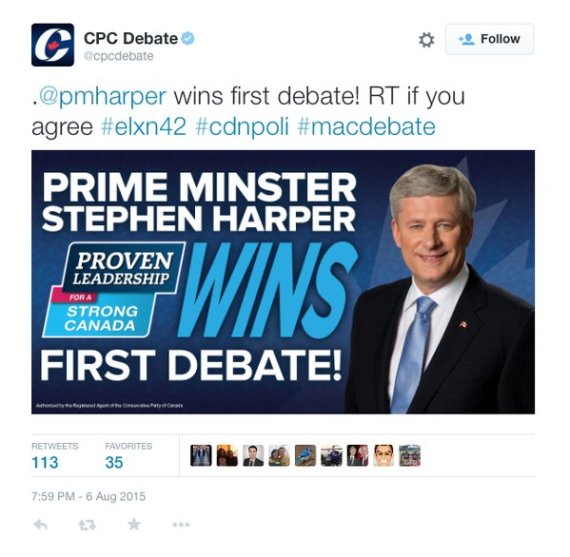Where has Trudeau been since he was annointed leader. For starters his House of Commons attendance record is pretty shoddy, and is worse than Ignatieff. Trudeau let Mulcair do all the heavy lifting and now Trudeau wants the glory, which is not in tune with most Canadian voters' values.
You do realize the NDP is the Official Opposition? The benefit is that they get to be front and centre in the House of Commons. As the party in 3rd place the Liberals don't get to ask many questions. Mulcair was just doing his job, and he did do it very well but Canadians don't pay much attention to the HoC because it is all theatre.
Lots of anti-Trudeau ads tonight.



